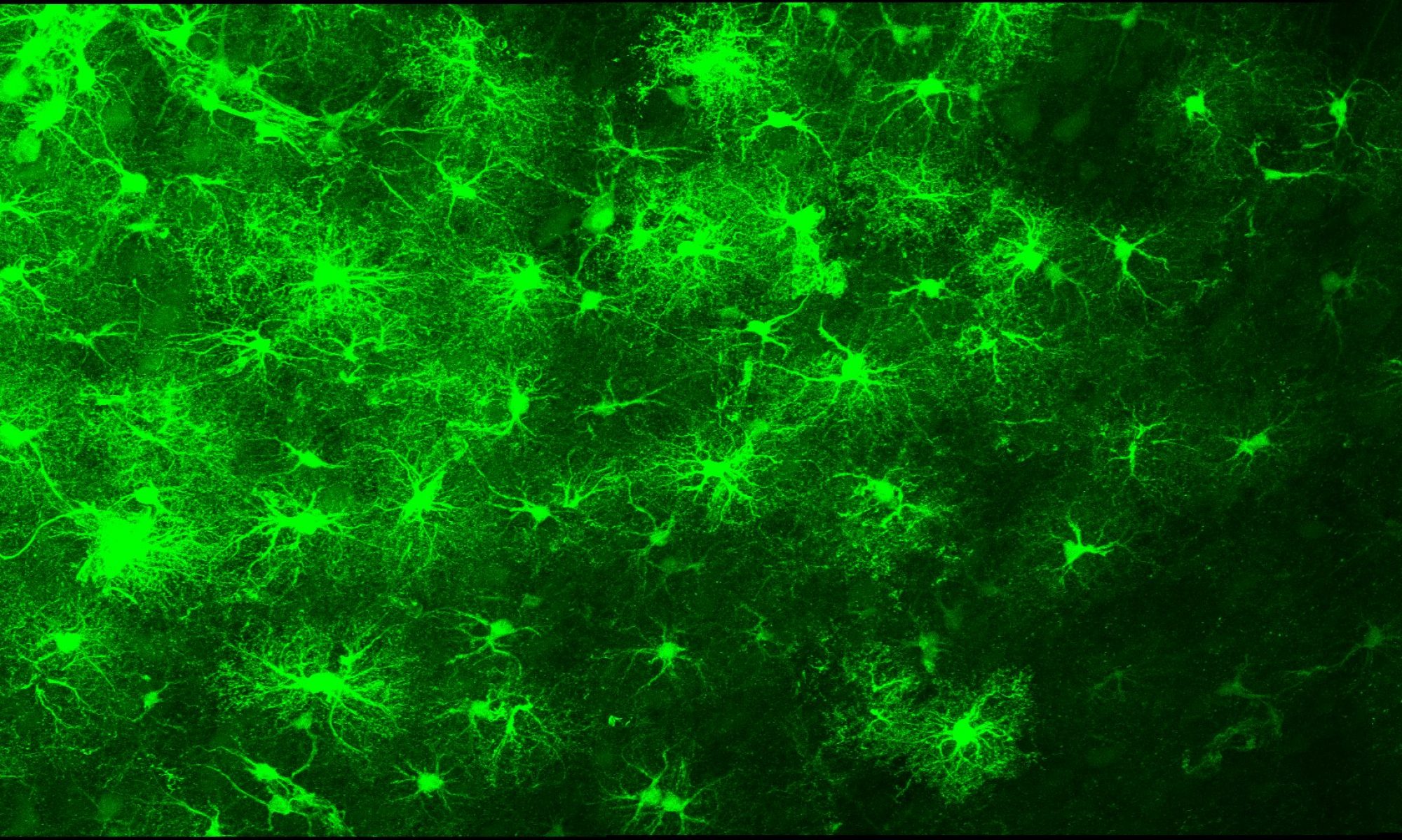From the moment Santiago Ramón y Cajal peered into his microscope and saw the beautiful star-shaped cells we know as astrocytes, he was convinced that their unique structures were reflective of unique functions in the nervous system. However, the strong and more easily measured electrical activity of the neurons captivated the field of neuroscience’s focus for the last century. The less easily identified activity of astrocytes and other glial cells was regarded as supportive of the neurons or by some sadly seen as unimportant. Thus, our understanding of the astrocyte’s function has developed more slowly.
The Newman Lab studies the unique role of astrocytes in attention, learning, and memory. During these cognitive processes the brain is often trying to sift through vast amounts of information to separate the important and memorable from the mundane. Astrocytes have been shown to provide structural, metabolic, and neurochemical support for the neurons that influence the synapses, or connections between cells in the brain and the electrical activity of neurons. Using neurochemical measures targeting astrocytes in conjunction with behavioral assays, our work suggests a critical role for astrocytes in cognition. By elucidating the unique functions of astrocytes, we hope to provide targets for novel therapeutics for neurodegenerative and neuropsychiatric disorders such as Alzheimer’s disease, schizophrenia, and ADHD.
